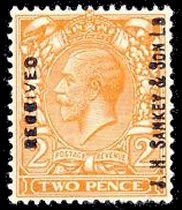Charles Bayer & Co. Ltd. was a corset manufacturing company, established in the late 19th century in Bath by a German immigrant named Charles Bayer.
In 1892 large four-story premises were established in the city. The red brick building was England's first corset factory, and the first factory in Bath to be built with an integrated electric light supply. The top floor of the building housed a workshop for making suspenders and the printing department. The cutting room was on the third floor; cloth was cut into pieces by a 22ft long cutting machine and girls on either side of the cutter used sewing machines to stick and join the pieces together. The second floor housed the finishing rooms where the products were pressed and ironed. The lower floors contained the stock room, general office and dispatch department – the corsets were shipped all over the world.
As the business grew, Bayer established additional corset factories in Bristol, Portsmouth, Gloucester and London. Bayer's advertisements boasted that his “superfine British corsets for British wearers” were made with the “daintiest French fabrics” and were “as easy fitting as a perfectly cut kid glove, with a complete absence of pressure upon the respiratory organs.”
Bayer's business was all but wiped out in the 1930s, but corset production continued under new owners who, in the 1970s, added lingerie to its lines. The large factory in Bath closed down in 1982, although the building still stands today.
by Mark Matlach






